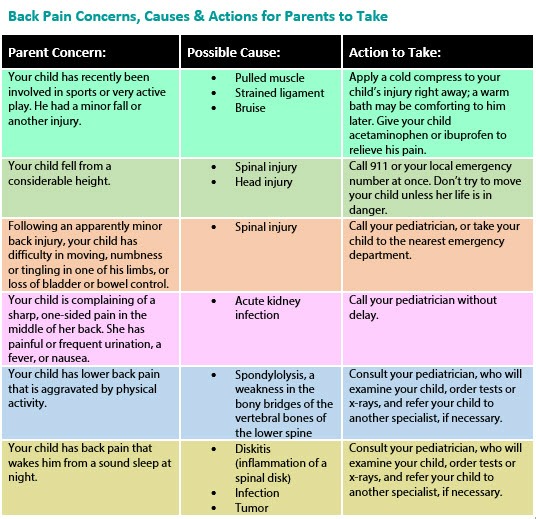Problems that affect a child's back are most often due to injuries from sports or play, falls, or unusual strain, such as that caused by wearing a heavy backpack. Back pain and stiffness are most often caused by a pulled muscle, a strained ligament, or bruising. Symptoms of back pain usually disappear within a week without special treatment.
Possible Causes:
Although regular exercise is beneficial for all children, intensive training may lead to overuse injuries with back pain in some young athletes. For example, dancers and gymnasts, are especially prone to back pain due to overuse. On the other hand, children who are overly sedentary (i.e., don't move much) may have back pain from weak core muscles, back strain from being overweight, or poor posture.
Scoliosis (a severe curvature of the spine) is a possible cause of back pain, especially in adolescent girls. Your pediatrician evaluates your child's posture during regular well-child visits to make sure her back is straight and she's growing normally.
Spondylolysis is a weakness in the bony bridges of the vertebral bones, usually in the lower spine. It can cause low back pain aggravated by activity and is frequently accompanied by minimal or no physical findings. Radiographs may be helpful if spondylolysis is suspected.
When to Call the Pediatrician:
Consult your pediatrician if your child with back pain is younger than 10 years or has:
Pain that won't go away or is getting worse
Fever or weight loss
Difficulty in moving a limb
Numbness or tingling in a limb
Loss of bladder or bowel control
A change in gait or posture
Back pain in a young child who hasn't been injured is concerning and needs to be evaluated by your pediatrician.

Additional Information on HealthyChildren.org: